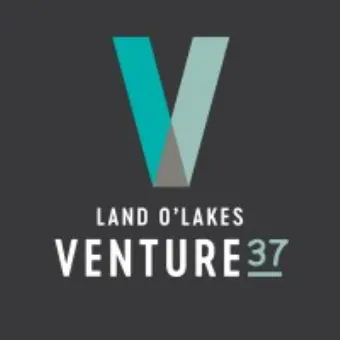Consultancy Opportunity: Develop a tool to utilize vTPA program data to profile and prioritize actions according based on food safety risk within the horticulture value chain in Rwanda. (Activity 1.2.6)

Land O'Lakes Venture37
- Outcome 1: Increased awareness of regulatory authorities on how to assess and use data / information generated by vTPA programme in Rwanda and Uganda.
- Outcome 2: Improved food safety compliance of food business operators (FBOs) in the horticulture and fisheries value chains based on the use of vTPA programme.
- Outcome 3: Increased awareness of food safety regulators on the application of vTPA approaches in other countries.
- Conducting a gender analysis;
- Mapping to identify prominent vTPA programs in target value chains;
- Reviewing the national food safety environment in horticulture and aquaculture fisheries in Rwanda and Uganda respectively;
- Organizing a study tour to the United Kingdom;
- Updating relevant legislation and inspection standard operating procedures for risk-based inspections;
- Developing country-specific roadmaps;
- Establishing a robust framework for assessment of vTPA programmes; and
- Holding several knowledge transfer sessions for public and private sector players.
- Collect and integrate food safety data across the supply chain (producers, processors, distributors, retailers).
- Compute and visualize risk scores for each entity using a standardized grading model.
- Deliver actionable insights by linking risk grades to guidance on frequency of regulatory control by the competent authority.
- Communicate efficiently through real-time dashboards, alerts, and reports. Overall, the system will strengthen compliance, improve response to food safety threats, and support risk-based inspections and regulatory oversight.
- Design and automate a tool/template for food safety risk data capture and collection;
- Set up an automated risk scoring system/program that converts the data captured in objective (i) above into risk scores for each individual establishment
- Provide a program that, based on the individual establishment risk scores, generates recommendations for inspection/regulatory oversight frequencies
- Incorporate a provision for real-time communication about any changes and trends in the risk scores to the stakeholders who may include the Competent Authority Inspectors, representatives of the FBOS, and any others as may be decided by the Competent Authority.
- Review of Documents: Undertake a review of relevant literature on vTPA programs and food safety including any Project Implementation documents available at the time. The document review will include, but not limited to:
- CODEX guideline CXG 93-2021
- STDF/vTPA Project report on gender analysis
- STDF/vTPA Project report on review/scan of the national food safety environment looking at prominent vTPA programs used within horticulture and aquaculture fisheries value chains in Rwanda and Uganda respectively.
- STDF/vTPA Project reports on review of the legislations and SOPs with reference to risk-based inspection in the horticulture value chain in Rwanda.
- Policy documents, laws, regulations, standards and any codes of practices detailing food safety control for horticulture value chain in Rwanda. Particularly the recently updated legislations and SOPs, or the drafts thereof as proposed by this STDF/vTPA project. The consultant should liaise with the CA to get the relevant documents.
- Any other available literature with reference to food safety control and use of risk based inspections.
- Consultative meetings with the Rwanda Inspectorate, Competition and Consumer Protection Authority (RICA): Specifically the consultant will liaise with the key staff (project focal point, Acting Head of Department for Registration, Licensing and Enforcement, and any other assigned technical officers) to agree on the risk calculator and to resolve any other technical issues to ensure the developed system is user friendly and practicable to the horticulture value chain in Rwanda. (Where needed, the Competent Authority-RICA, will arrange for the consultant to meet with key representatives of the private sector).
- Present the prototype system and demonstrate its use to the CA staff and management in Rwanda, and facilitate discussions on the most tenable FBO risk-profiling system.
- Present the key modules of the completed system and demonstrate its use to national public/private sector stakeholders in Rwanda.
- Reporting: Prepare reports of the results in accordance with the report structure guidance. Specifically the consultant will
- Compile and prepare reports of the consultative engagements for submission to the Project Coordinator
- Compile and submit a User Acceptance Test (UAT) report to the Project Coordinator
- Compile the final report for submission to the Project Coordinator
- Prototype system for presentation to the staff and management of the CA in Rwanda
- Reports of the consultative meetings for Rwanda, and the corresponding draft requirements for the system
- System Technical and user guide documents including the source code
- Final approved system with a duly signed UAT report.
- Advanced degree in Computer Science, Information Systems or related fields from a recognized university.
- At least 15 years of post-qualification experience in information systems development and management.
- Proven experience of at least 10 years’ experience in reviewing, planning and designing information technology systems and in conducting business analysis and designs, carrying out business process re-engineering, and in undertaking systems reviews. Work experience in Rwanda and other developing countries is preferred.
- Demonstrated knowledge in the development, supervision or management of modern web-based IT systems. Advantage will be awarded to familiarity with technical skills in web development, database management, system integration based on RESTful API, and infrastructure support with experience in using modern programming languages and frameworks especially ReactJS, NodeJS or AngularJS.
- Good understanding of the regulatory environment in Rwanda with reference to horticulture, food generally, drugs and or any other such high risk products is desirable.
- Knowledge of the WTO SPS Committee and the International Standards Setting Bodies, including Codex, WOAH formerly OIE, and the IPPC.





